Saint Michael The Archangel : Spiritual Elohim Updates
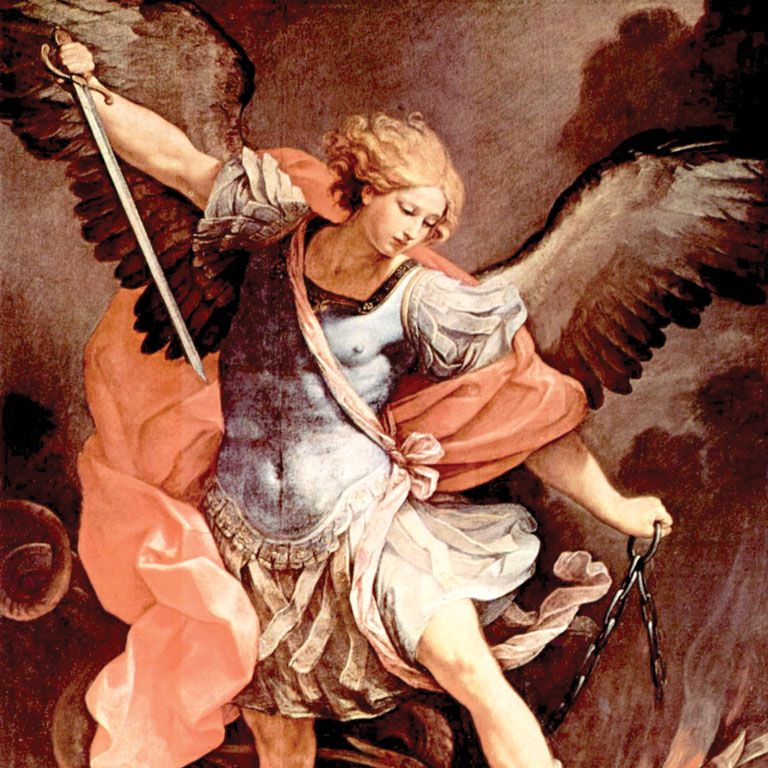
What is a saint?
The English word “saint” derives from the Latin “sanctus”, meaning “holy”. So “saints” are just “holy persons”. Being an Eastern Orthodox Christian I’m more familiar with Greek; in Greek it’s the same: a saint like St James would be “o άγιος Ἰάκωβος”, literally “Holy James” or “the Holy One James”. Similarly archangels like St Michael are referred to as “the Holy Archangel Michael” (“o άγιος αρχάγγελος Μιχαήλ”). There’s no difference between the words for “holy” and “saint” like in English.

In modern Catholicism, archangels Michael, Gabriel, and Raphael are all considered saints in the formal sense. For everyone saying "but we don't call Gabriel a saint," have a Google at "St. Gabriel parish" and "St. Raphael parish." Catholicism is built on two poles: Scripture and tradition. While Michael and Gabriel are mentioned in Scripture (and so is Raphael, in this case--Tobit is in the Catholic Old Testament even if Jews and Protestant Christians reject that book), it's tradition that affords them sainthood.
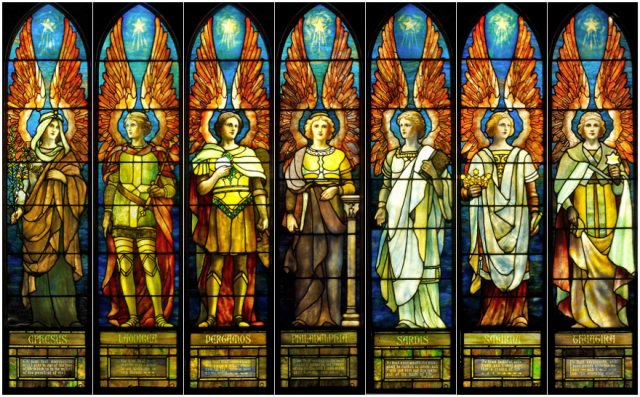
What is an Archangel?
An archangel /ˌɑːrkˈeɪndʒəl/ is an angel of high rank. The word "archangel" itself is usually associated with the Abrahamic religions, but beings that are very similar to archangels are found in a number of religious traditions.
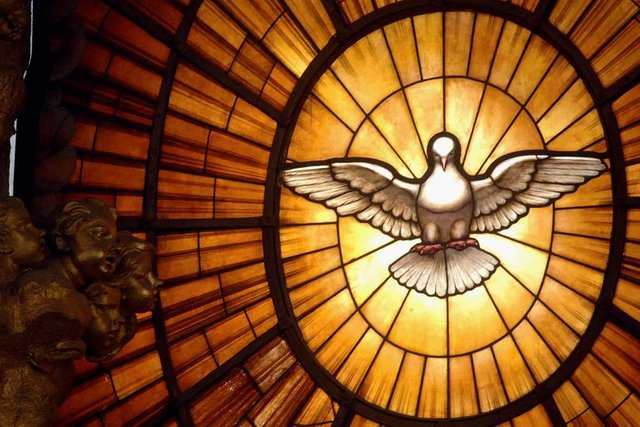
What is Holy?
The Hebrew word for holy is “qodesh” and means “apartness, set-apartness, separateness, sacredness” and I would add that it should also be “otherness, transcendent and totally other” because God is totally above His creation and His creatures, including us. Holy has the idea of heaviness or weight of glory. In the New Testament, the word for holy is “hagios” and means set apart, reverend, sacred, and worthy of veneration.” This word applies to God because God Himself is totally other, separate, sacred, transcendent, reverend, and set apart from every created thing. Since God is spirit this is why the Third Person of the Trinity is called the Holy Spirit. He too is fully God and all three Persons of the Trinity are holy and have the weight of glory abounding in them.
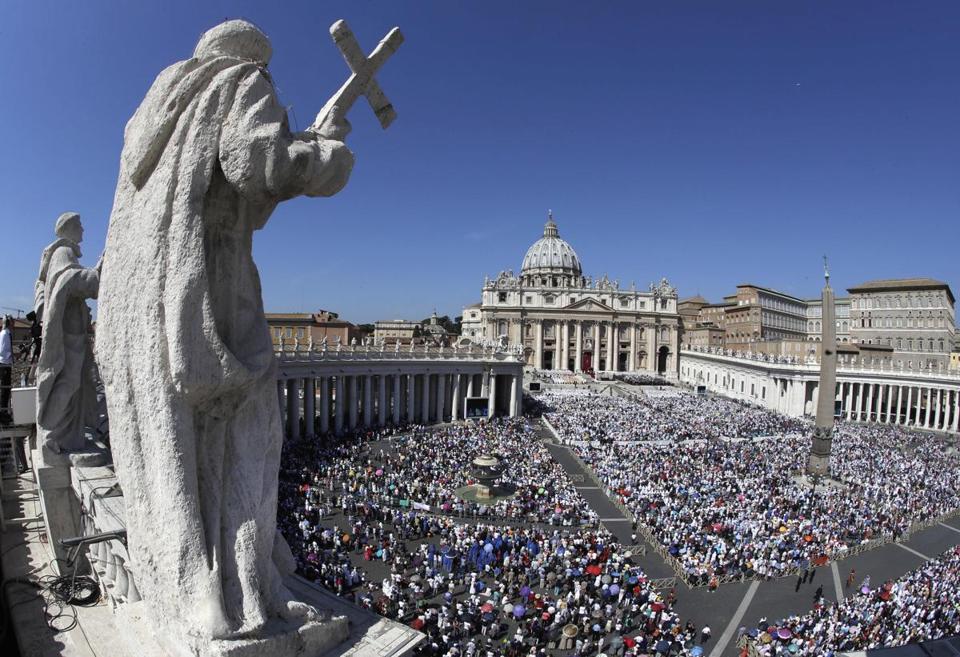
Can you tell me about Canonization?
Canonization is the act by which a Christian church declares that a person who has died was a saint, upon which declaration the person is included in the "canon", or list, of recognized saints. Originally, a person was recognized as a saint without any formal process. Later, different processes were developed, such as those used today in the Anglican Communion, the Catholic Church, the Eastern Orthodox Church, and the Oriental Orthodox Church.
What is the process of Canonization?
The process of official designation of individuals as saints by the Church magisterium--is a high medieval invention. But both before and after that, recognition of saints was a local phenomenon that might even begin during the prospective saint's lifetime. Christians recognized certain people as exceptionally holy, for a variety of reasons not all of which we would equate with "holiness" today, and thus closer to God. In particular, close to God in ways that they could request divine aid on behalf of other people--namely, those who venerated them by praying for their help, those who visited their shrines, those who donated money to churches and monasteries dedicated to them. Saints were believed to work miracles in life and act as intercessors with God after death, speeding good Christians through purgatory into heaven.
Once canonization was in play, there was a certain weirdness where supporters of a candidate for sainthood would try to assemble the "application package" for a canonization process on one hand, but on the other, actively aid the cult (cultus, or organized devotion) of the person as a saint in their own region. So a lot of medieval people we call "St. ___" are technically not. A great example is Barbara Newman's 1987 book Sister of Wisdom: St. Hildegard's Theology of the Feminine. 12th century abbess and visionary prophet (and everything else) Hildegard of Bingen was not actually canonized yet when Newman published her book, but for all intents and purposes, Catholic laity treated Hildegard like a saint.
As canonization settled into place as a Church institution, they basically grandfathered in all pre-existing recognition of saints. Mary Magdalene was never canonized; she's a saint. Martin of Tours, never canonized; he's a saint. And so on. Christians prayed to them for intercession with God in life and in death. The blanket acceptance of early saints eventually posed some problems for the (by then) Catholic Church, as they realized some of the most popular saints like Katherine of Alexandria and Margaret of Antioch could never have actually existed. (Their current status is...complicated.)
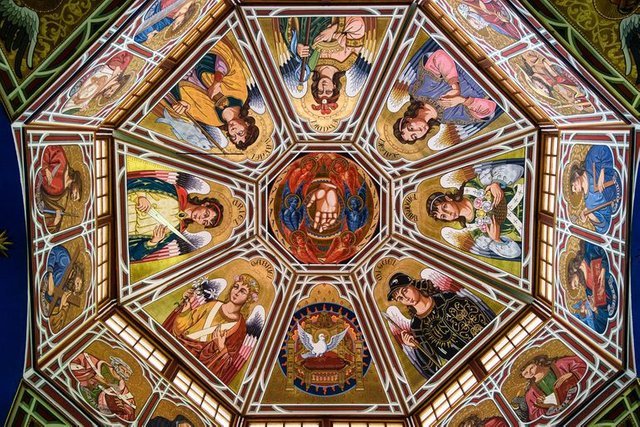
Tell me something about Archangels.
Michael, Gabriel, and Raphael all had cults of veneration that predated the introduction of canonization. However, there's no question that Michael was the most popular by far. An important reason for this was late antique and medieval tension over the potential power of angels as agents of magic. The Church worried about people invoking angels, just like demons, to complete ungodly sorcery. Michael, however, was considered unimpeachable. There is lots of evidence for official Church support of his cult from quite early--the Leonine Sacramentary from the seventh century (the link to Pope Leo is modern nomenclature) contains a liturgy in his honor. Very important early medieval theologian Rhabanus Maurus wrote hymns in praise of Sanctus Michael. His shrines were especially associated with mountains/high places--you know Mont-St-Michel in France, probably. Richard Kieckhefer suggests he was something of a "sky god" in comparison to Mary as an "earth goddess," with their cults skyrocketing in popular in tandem over the course of the later Middle Ages. Michael, like Mary, was a boundary-guardian, there between life and death, there at a Christian's deathbed.
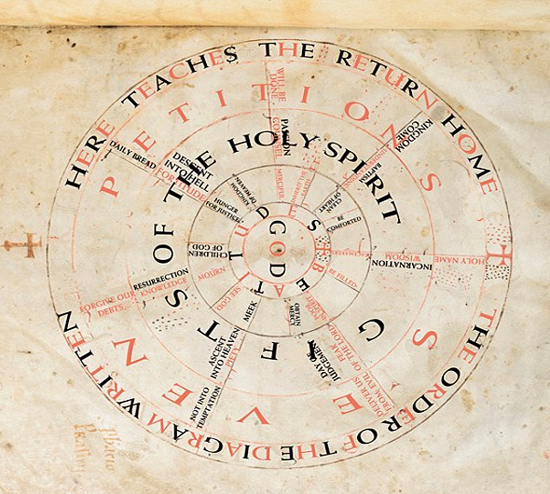
What is a Magical Prayer?
God be favorable to me a sinner, and be my guard all the days of my life. God of Abraham, God of Isaac, God of Jacob, have mercy on me, and send to my aid Michael your Archangel, that he may keep, protect, and defend me form all my enemies, visible and invisible.
Holy Michael, the archangel of God, defend me in battle, that I may not perish in the dreadful judgment. Archangel of Christ, by the grace with you have merited I beseech you, through our only-begotten Lord Jesus Christ, draw me today and always from deadly peril. Holy Michael, Holy Gabriel, Holy Raphael, all holy angels and archangels of God, hasten to help me. [...]
Behold + the cross of the Lord, begone you enemies. The lion of the tribe of Judah has conquered; root of David, stem of Jesse, saviour of the world, who have redeemed me through your cross and blood, save me, help me, my GOd. Agios, Agios, Agios. Cross of Christ protect me. Cross of Christ, save me. Cross of Christ, defend me from every evil.
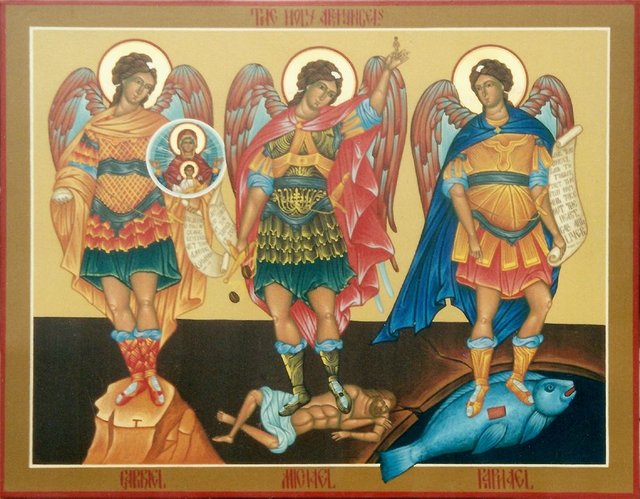
Why was The archangels Holy Saints?
I don't have the Latin, but I suspect "holy" is the Latin sanctus, which can mean holy or saint.
Essentially, Michael, Gabriel, and Raphael became saints because Christians treated them like saints. Michael, considered the least ambiguous or rather ambivalent in terms of potentially being invoked for black magic, had the most central support from the Church--but also took on the tasks most important to medieval Christians, a guardian in their quest for salvation.
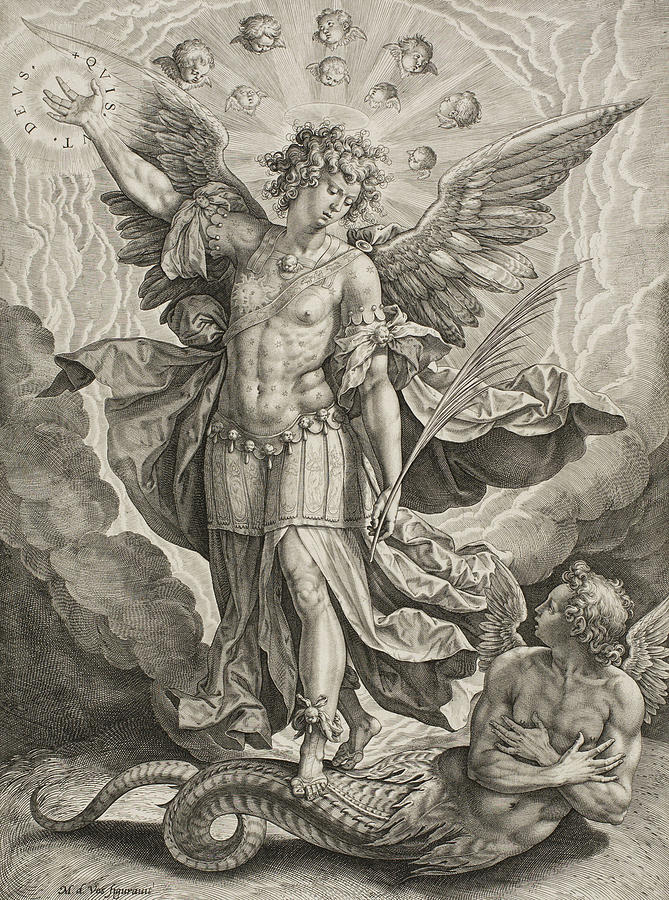
Are you St. Michael?
I AM YOUR NOBODY. KING ALPHA. THE PIONEER. THE GOD PARTICLE. THE FIRST THOUGHT
I CANT FLY YET. BUT YHWH IS MY BESTEST FRIEND. HE WALKS WITH ME 24/7 I HEAR HIM 24/7
What would Archangel Michael say?
As I'm the new age messiah. They call me Michael the archangel. Also The Elohim, as I social engineer with my music. I make god's name important again and in the future I will run various village-cities via concepts like social media as I will defeat the dragon for good.
.png)
What is Elohim?
Elohim in Hebrew script: the letters are aleph-lamed-he-yud-mem.
Elohim (Hebrew: אֱלֹהִים ’ĕlōhîm [ʔɛloːˈhim]) is one of the many names or titles for God in the Hebrew Bible; the term is also used in the Hebrew Bible to refer to other gods.
The notion of divinity underwent radical changes in the early period of Israelite identity and development of Ancient Hebrew religion. The ambiguity of the term elohim is the result of such changes, cast in terms of "vertical translatability", i.e. the re-interpretation of the gods of the earliest recalled period as the national god of monolatrism as it emerged in the 7th to 6th century BCE in the Kingdom of Judah and during the Babylonian captivity, and further in terms of monotheism by the emergence of Rabbinical Judaism in the 2nd century CE.The word is identical to the usual plural of el meaning gods or magistrates, and is cognate to the 'l-h-m found in Ugaritic, where it is used for the pantheon of Canaanite gods, the children of El, and conventionally vocalized as "Elohim". Most use of the term Elohim in the later Hebrew text imply a view that is at least monolatrist at the time of writing, and such usage (in the singular), as a proper title for the supreme deity, is generally not considered to be synonymous with the term elohim, "gods" (plural, simple noun). Hebrew grammar allows for this nominally plural form to mean "He is the Power (singular) over powers (plural)", or roughly, "God of gods". Rabbinic scholar Maimonides wrote that the various other usages are commonly understood to be homonyms.
Are you Elohim?
Yes I AM that of a God, 1 Times 33 Times 7 = Elohim and me.
Congratulations @j1337! You have completed some achievement on Steemit and have been rewarded with new badge(s) :
Click on any badge to view your own Board of Honor on SteemitBoard.
To support your work, I also upvoted your post!
For more information about SteemitBoard, click here
If you no longer want to receive notifications, reply to this comment with the word
STOPDo not miss the last announcement from @steemitboard!